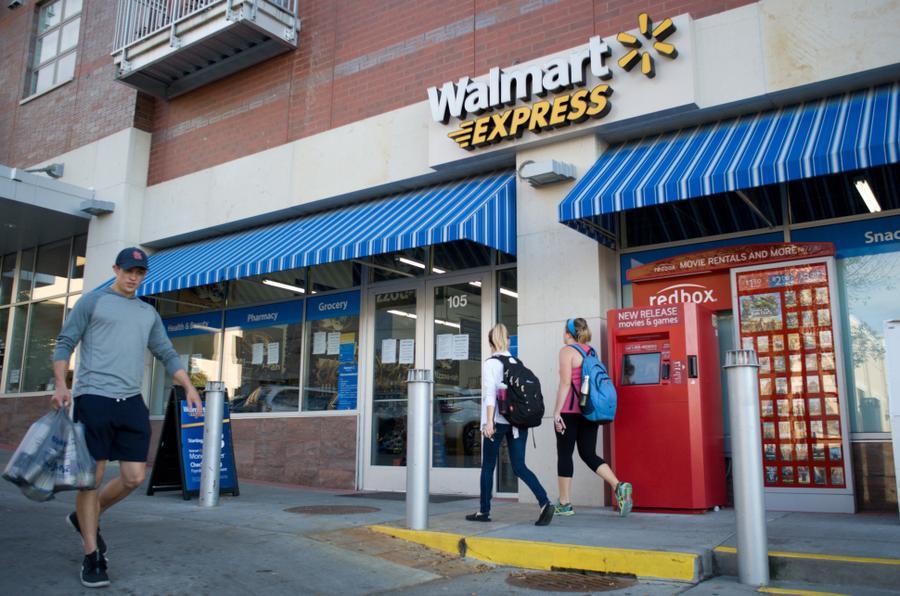
Hungry for something on the healthier side? If you live in Columbia, you probably aren’t alone, the U.S. Department of Agriculture says.
According to a [map tool](https://www.ers.usda.gov/data-products/food-access-research-atlas/go-to-the-atlas/) on the USDA website, a large section of Columbia qualifies as a “food desert,” which the organization defines as a “low-income census tract where a substantial number or share of residents [have] low access to a supermarket or large grocery store.”
Affected areas include a substantial portion of campus and downtown, as well as a vast area south of Stadium Boulevard and east of Providence Road. Urban areas like Columbia are considered to be food deserts when a “significant number of low-income residents live more than a mile from a supermarket.”
Hunter Windholz, chairman of the Missouri Students Association Campus and Community Relations Committee, said his committee has been probing the problem after hearing about it from “some firsthand accounts and newspaper articles.”
“We haven’t had avid complaints lately,” Windholz said. “… Before complaints start to come in, we want to take more of a proactive approach.”
Windholz is no stranger to the difficulty of accessing affordable healthy food in Columbia.
“There’s nowhere to really go get fresh food unless you’re gonna splurge and go to Lucky’s and spend the extra money,” he said.
Lucky’s Market opened a few years ago on Providence Road and is a full-service grocery store, but the relatively high prices and distance to the store are obstacles for many.
For Evan Hunt, an MU sophomore who lives on the east side of Columbia, the availability of fresh produce is key.
“For a variety of weird reasons, my health is tied up with my diet in a big way, more than most people,” Hunt said. “Because of that, I rely on being able to consistently access quality fresh produce.”
Overall, Hunt’s experience finding groceries in Columbia has been good, with some caveats.
“I was really surprised that Columbia had the amount of stuff going for it that it does, grocery-wise,” Hunt said. “The amount of high-quality stores here is impressive considering how small the population is. I think you’d be hard-pressed to get everything you need without a car, but I’m doing alright here.”
Hunt feels that while options in the area are plenty, cost and freshness aren’t always ideal.
“Price is a big issue here,” he said. “I suppose that the relative remoteness of town might account for some of the prices, but that’s just a guess. I’ve noticed with the small population produce has a tendency to sit for a long time in stores. There just aren’t enough people to buy it up quick enough to order more.”
Hunt frequents stores like Lucky’s, Clovers Natural Market and Schnucks, which he said are “pricey, but close, which is always good.”
[Walmart Express](http://move.themaneater.com/stories/2016/10/5/walmart-express-close-friday/) downtown provided a remedy to the price issue by offering students a relatively cheap grocery alternative, but it closed in October.
Michelle Shikles, Community Health Promotion Supervisor with the Boone County Department of Public Health and Human Services, acknowledged the importance of fresh grocery access to public health.
“Supermarkets improve access to affordable, nutritious food which can improve health status,” Shikles said. “Increased availability of healthy foods impacts a person’s diet. Research shows the presence of supermarkets in a community is associated with a lower prevalence of obesity.”
Lately, authorities both on and off campus have been working to increase the availability of healthy options. Shikles said that one of the department’s recent initiatives has been its Stock Healthy, Shop Healthy program.
The program cooperates with local stores by educating both vendors and customers about the necessities of eating healthy.
“The goal of this program is to increase the amount of healthy foods offered at convenience stores and small grocers,” Shikles said. “This past year, we worked with the Pierpont Store and World Harvest International and Gourmet Foods. We are currently in the process of identifying stores for the upcoming year.”
Students on campus, including Windholz, are also working on alternative grocery solutions. MSA Senator Dylan Cain has been exploring the possibility of getting Electronic Benefits Transfer machines on campus. EBT machines are small card-reading devices that grocers and markets can use to accept food stamps and debit cards. Cain says that getting one of the machines would increase payment options for buyers looking for fresh food.
In order for stores to qualify for a machine, stores must “meet certain standards by providing so much fresh produce, so much meat products,” and “either eggs or dairy,” Cain said.
Other potential ideas MSA is exploring include working with local urban gardens and organizing an on-campus farmers market.
_Edited by Emily Gallion | [email protected]_